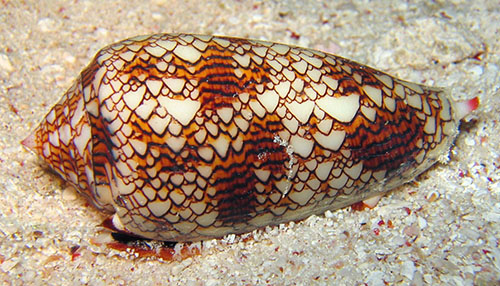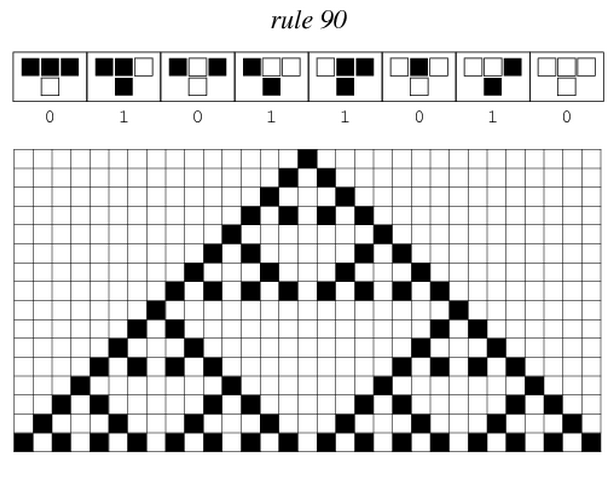Team:ETH Zurich/project/overview/summarysimple
From 2014.igem.org
(Difference between revisions)
(Replaced content with "700px You might be wondering where these patterns on snea snail shells come from. What if they would come from a simple rule, followed by all c...") |
|||
| Line 1: | Line 1: | ||
[[File:ETH Zurich snails.jpg|700px]] | [[File:ETH Zurich snails.jpg|700px]] | ||
| + | |||
You might be wondering where these patterns on snea snail shells come from. What if they would come from a simple rule, followed by all cells on the shell ? | You might be wondering where these patterns on snea snail shells come from. What if they would come from a simple rule, followed by all cells on the shell ? | ||
| + | |||
[[File:ETH Zurich Rule 90.PNG|700px]] | [[File:ETH Zurich Rule 90.PNG|700px]] | ||
| + | |||
| + | As a matter of fact, many of the complex patterns you can see in nature come from simple rules. It is the case for hurricanes, flocks of birds, neural networks... We call this phenomenon emergence. Emergent phenomena are not predictable from the initial situation and this is why they surprise us. | ||
| + | |||
| + | We are driven by this fascination and try to reproduce patterns on sea snail shells, called Sierpinski triangles, on our own grid of cells : | ||
Revision as of 10:05, 2 September 2014
You might be wondering where these patterns on snea snail shells come from. What if they would come from a simple rule, followed by all cells on the shell ?
As a matter of fact, many of the complex patterns you can see in nature come from simple rules. It is the case for hurricanes, flocks of birds, neural networks... We call this phenomenon emergence. Emergent phenomena are not predictable from the initial situation and this is why they surprise us.
We are driven by this fascination and try to reproduce patterns on sea snail shells, called Sierpinski triangles, on our own grid of cells :
 "
"

